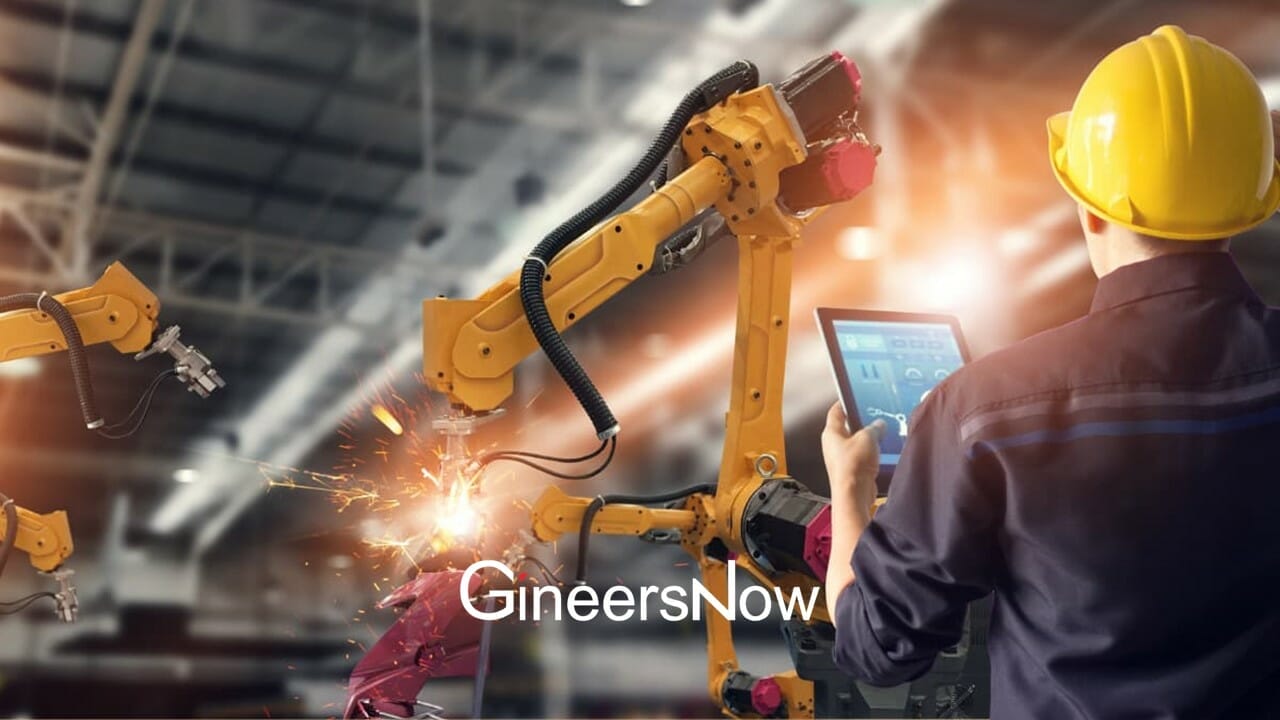The manufacturing industry has always been at the forefront of some seriously big technological advancements. From the first industrial revolution, which saw the rise of mechanical production, to the current digital age, manufacturing has continued to evolve, thanks to innovative technological advancements. Often referred to as a fundamental pillar of society, manufacturing plays a huge role in our daily lives — from smartphones and computers to coffee machines and cars, manufacturing has completely transformed the way we live our lives for the better.
Although manufacturing has indeed come a long way, unsurprisingly, the question on everyone’s minds is always, “What’s next?”. Thankfully, we’re here to take away the guesswork and shine some light on the matter. Here are the top technological advancements to watch in the manufacturing industry in 2023 and beyond.
1. The Internet of Things (IOT)
The Internet of Things (IoT) in manufacturing refers to the use of connected devices and sensors to collect data from industrial equipment and systems. These devices are typically embedded with sensors and other technologies that allow them to communicate with each other and with other computer systems. IOT in manufacturing is a rapidly evolving field, and there are several advancements to look out for, including:
Predictive Maintenance: IoT sensors can collect data on the performance of industrial equipment, allowing manufacturers to predict when maintenance will be required. This approach can reduce downtime and maintenance costs while improving equipment lifespan.
Remote Monitoring: IoT technology enables remote monitoring of industrial equipment, allowing operators to keep an eye on performance from a distance. This approach can improve worker safety, reduce downtime, and minimise maintenance costs.
Supply Chain Optimisation: IoT devices can track the location of products and materials throughout the supply chain, providing real-time information on inventory levels and shipment status. This information can be used to optimise supply chain processes and reduce waste.
Improved Energy Efficiency: IoT devices can be used to monitor energy usage in industrial facilities, allowing manufacturers to identify areas where energy consumption can be reduced. This can include everything from optimising lighting and HVAC systems to reducing the energy consumption of production equipment. By improving energy efficiency, manufacturers can reduce their environmental impact and save on energy costs. Learn how manufacturers can cut down on production waste here.
2. Robotics & Automation
Robotics is a field of technology that deals with the design, construction, and operation of robots. In the manufacturing industry, robots are used to automate repetitive and dangerous tasks, increasing efficiency and safety. As we are currently witnessing a huge shift towards remote working in many industries, we anticipate that robotics will play a role in allowing manufacturing workers to work remotely by enabling them to control and monitor manufacturing processes from a remote location. This is known as teleoperation, a term that refers to the use of robotic systems to perform tasks that are physically located in a different location from the operator. For example, a worker can remotely control a robotic arm to perform a manufacturing task in a factory located in a different city or even from across the world.
Did You Know?: In addition to autonomous robotics, collaborative robots, also known as cobots, are designed to work safely alongside human workers. These robots are equipped with sensors that allow them to detect and respond to human presence, making them ideal for tasks that require close collaboration between humans and robots.

3. Digital Twins
As the name suggests, digital twins are virtual replicas of physical objects or systems, including manufacturing processes and equipment. In the manufacturing industry, digital twins can be used to simulate the behaviour and performance of manufacturing processes, equipment, and products, providing manufacturers with real-time insights into their operations. For example, a digital twin of a production line can be used to simulate the impact of changes to the manufacturing process, such as the introduction of new equipment or changes to production rates. This can help manufacturers identify potential issues before they occur and optimise their operations to maximise efficiency.
Some of the world’s biggest companies have already embraced digital twins in manufacturing, including Microsoft, IBM, Siemens, General Electric (GE), and Bosch. Understandably, we only expect to see more and more manufacturing facilities and firms adopting this concept to improve efficiency, reduce downtime, and increase productivity, ultimately leading to greater profitability and competitiveness.
4. Additive Manufacturing (3D Printing)
Additive manufacturing, also known as 3D printing, is a process of creating three-dimensional objects by adding layers of material. This technology is revolutionising the manufacturing industry by enabling manufacturers to create complex shapes and designs that would be difficult or impossible to achieve using traditional manufacturing techniques. Not to mention, additive manufacturing can reduce waste, improve product quality, and increase production speed. Several top companies use 3D printing in their manufacturing processes, including Airbus (often referred to as the pioneers of 3D printing in the manufacturing industry), Procter & Gamble, Ford, BMW, and General Electric (GE), amongst many clothes. As technologies continue to advance, it is estimated that 3D printing will usher in a new era of customisation as it enables the production of individually tailored products without being hindered by economies of scale.
5. Blockchain
Last but not least, blockchain is a distributed ledger technology that allows multiple parties to share data securely and transparently. Several industries, including finance and healthcare, have already started to adopt blockchain technology, and manufacturing is following suit. In the manufacturing industry, blockchain can enable end-to-end traceability in supply chain management, providing manufacturers with real-time visibility into their supply chains. This can help to identify potential issues, such as counterfeit products, and improve overall supply chain efficiency. Additionally, blockchain can enable the creation of digital identities for products, equipment, and individuals involved in the manufacturing process. This can help to verify the authenticity and integrity of products and ensure that only authorised individuals are involved in the manufacturing process.
A few of the most notable manufacturing companies that are exploring and implementing the use of blockchain technology in their operations include IBM, Foxconn, Bosch, Siemens, and Nestle. As the technology continues to mature and more companies adopt blockchain-based solutions, it is likely that it will become more cost-effective and easier to implement. Additionally, the ongoing development of new blockchain use cases and applications will likely create more opportunities for manufacturers to leverage this technology to improve their operations.
Conclusion
And there you have it — 5 technological advancements to watch in the manufacturing industry in 2023 and beyond. By embracing these technologies, manufacturers can improve efficiency, reduce costs, and increase quality, ensuring that they remain competitive in a rapidly changing global marketplace.
Which advancements are you most excited to witness? Be sure to share your thoughts in the comments section below!











